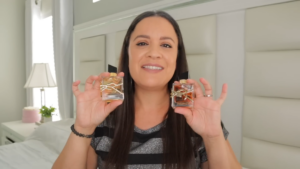Conflict is an inevitable part of any relationship, whether personal or professional. How we handle these conflicts can significantly impact the strength and longevity of our connections. Developing effective conflict resolution skills is essential for navigating challenges and maintaining harmony in our interactions. These skills enable us to address disagreements constructively, fostering understanding and collaboration instead of discord. By approaching conflicts with empathy and open communication, we can turn potential obstacles into opportunities for growth and deeper relationships.
Navigating conflicts together requires a commitment to active listening and a willingness to understand the other person’s perspective. It’s not about winning or losing but finding a solution that benefits everyone involved. This approach encourages mutual respect and helps build trust, as both parties feel heard and valued. Conflict resolution is a shared journey that requires patience, compassion, and the ability to compromise. When done effectively, it strengthens the bond between individuals and creates a more positive and supportive environment.
Understanding the Nature of Conflict
Understanding the nature of conflict is the first step in resolving it. Conflict often arises from differences in opinions, values, or needs, and recognizing these differences is crucial. By identifying the root cause of the disagreement, we can address the issue more effectively. Understanding that conflict is a natural part of human interaction helps us approach it with a more open mind, ready to find common ground rather than focusing solely on our own perspective.
Conflict resolution isn’t just about solving the problem at hand; it’s also about strengthening relationships. When we understand the underlying reasons for a conflict, we can address deeper issues that might otherwise go unnoticed. This not only resolves the immediate disagreement but also prevents future conflicts from arising. By viewing conflict as an opportunity for growth, we can transform potentially negative situations into positive experiences that enhance our relationships.
- Active Listening. Active listening involves fully concentrating on what the other person is saying without interrupting or planning your response. This shows respect and helps you understand their perspective, making it easier to resolve the conflict.
- Empathy. Empathy allows you to put yourself in the other person’s shoes, understanding their emotions and motivations. This understanding fosters a more compassionate approach to conflict resolution, leading to better outcomes for all parties involved.
The Purpose of Conflict Resolution
The purpose of conflict resolution is to restore harmony and foster collaboration. It’s not about avoiding disagreements but addressing them in a way that strengthens relationships. Conflict resolution skills enable individuals to navigate disagreements constructively, focusing on finding solutions that satisfy everyone involved. This approach promotes a positive and supportive environment, where differences are respected, and mutual understanding is prioritized. Ultimately, the goal is to turn conflicts into opportunities for learning and growth.
Effective conflict resolution also has long-term benefits for personal and professional relationships. It helps build trust, as both parties know they can address disagreements without fear of escalation. This trust creates a foundation for more open communication and collaboration in the future. By mastering conflict resolution skills, we equip ourselves with the tools needed to maintain healthy and productive relationships, even in the face of challenges.
- Collaboration. Collaboration involves working together to find a mutually beneficial solution. It requires open communication, respect for each other’s viewpoints, and a willingness to compromise.
- Problem-Solving. Effective problem-solving involves identifying the underlying issues in a conflict and finding practical solutions. It’s about addressing the root cause rather than just the symptoms, ensuring long-term resolution and improved relationships.
Strengthening Bonds Through Conflict Resolution
Strengthening bonds through conflict resolution is about more than just resolving disputes; it’s about deepening our connections and fostering a culture of understanding and respect. By approaching conflicts with empathy and a willingness to collaborate, we create an environment where differences are valued and relationships can thrive. Conflict resolution skills are essential tools for maintaining harmony and building trust in any relationship, whether personal or professional.
Incorporating these skills into our daily interactions helps us navigate challenges more effectively, turning potential conflicts into opportunities for growth. As we continue to develop and refine our conflict resolution abilities, we not only improve our relationships but also contribute to a more positive and supportive environment for everyone involved. In the end, mastering conflict resolution is about creating stronger, more resilient bonds that can withstand any challenge.








